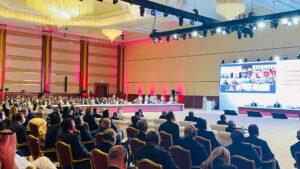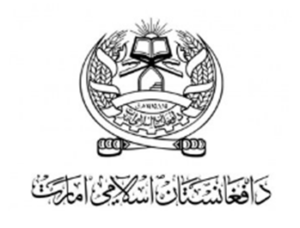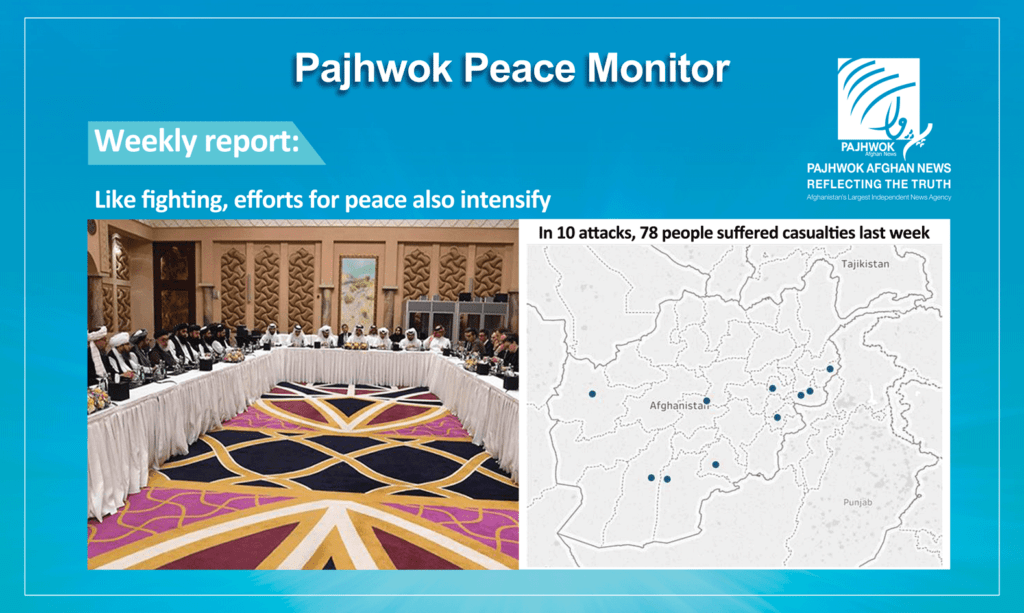KABUL (Pajhwok): Last week, preparations were stepped up for international conferences in Russia and Turkey on peace in Afghanistan in addition to a renewed diplomatic push.
However, the outgoing week remained more violent for civilians. Civilian deaths and injuries on the final day of the last week alone were almost equal to casualties throughout the previous week.
During the week, notable global efforts for peace in Afghanistan included the presentation of a roadmap by the US for a participatory government in Kabul, opposition from the EU, the US secretary of state’s letter to Afghan leaders and their reactions, the American special envoy’s trips to Qatar, Pakistan and Afghanistan and Khalilzad’s talks with the Indian foreign minister.
The letter from the US secretary of state triggered a strong backlash from some Afghan officials, especially the first vice-president. As the letter sparked a heated debate in the media, some Afghan officials reacted softly.
Last week, although there was no report about any meeting between the intra-Afghan peace negotiators in Doha, the Qatari capital hosted a number of high-ranking international officials for discussions on the Afghan peace process with different parties.
The Taliban also received the draft regarding a “participatory government” from Khalilzad last week. The militant movement, which is currently evaluating the proposal, would comment on it later on.
Hectic diplomatic activity notwithstanding, last week was more violent for civilians.
The international peace efforts have raised hopes for peace among some of the war-affected Afghans. But continued conflict and civilian casualties resulting from it have dashed their hopes.
Complete report:
Attacks and civilian casualties:
Pajhwok Afghan News has assessed the level of civilian casualties over the past four weeks based on its own and other media outlet reports.
The reports show last week -- from previous Friday (12:00 noon) to last Friday (12:00 noon) -- 28 people were killed and 59 others injured in 10 attacks in Herat, Helmand, Nangarhar, Zabul, Kandahar, Ghor, Kabul, Kunar and Paktia provinces.
Women and children were among those killed, but exact figures are not known.
Among those killed, 52 suffered casualties in a massive car bombing on last Friday in Herat, where six people were killed and 46 others wounded.
Last week, five people were killed in explosions, nine in face-to-face fighting and 11 in targeted attacks.
According to Pajhwok’s findings, 22 people had been killed and 48 others injured in 12 attacks in the previous week.
Pajhwok asked the National Security Council to share information about last week’s civilian casualties. But the council refused to do so.
Taliban spokesperson Zabihullah Mujahid claimed last week 35 people were killed and 11 others injured in government forces’ attacks in nine provinces — Badakhshan, Helmand, Logar, Nangarhar, Farah, Khost, Badghis, Balkh and Ghazni.
What is happening internationally?
Last week, the US shared a participatory government plan for peace in Afghanistan with Afghan government leaders and politicians. According to reports, guiding principles for the future of Afghanistan, a transitional government, a political roadmap and a permanent ceasefire are the three salient of the plan.
Under the auspices of the UN, the plan suggests, a high-level meeting will be held. Government officials, political leaders outside the government, including the Taliban, will be in attendance.
One conference is expected to be held in Russia and another in Turkey.
Moscow conference:
Russian Foreign Minister Sergei Lavrov said on Thursday a meeting on Afghan peace would be held in Moscow on March 18. According to reports, the Afghan government has agreed to send a delegation to the meeting, but has not yet decided who members of the delegation will be.
The Taliban have also confirmed that the Russian government had invited them to the meeting in Moscow and that they were consulting the invitation.
On Friday, Russian Foreign Ministry spokeswoman Maria Zakharova called the formation of an inclusive interim government in Afghanistan a logical way to resolve the country’s problems. She said the meeting would be attended by representatives from Russia, the US, China and Pakistan.
She hoped the Afghan government, the High Council for National Reconciliation, prominent politicians and Taliban representatives would also attend the event.
She said the conference would focus progress in the intra-Afghan talks, reduction of violence in Afghanistan and an end to the ongoing conflict.
Earlier, Russian Foreign Minister Sergei Lavrov said Iran had also been invited to attend the conference. He said no decision would be taken at the conference.
On March 10, Afghan Foreign Minister Mohammad Hanif Atmar told the Russian ambassador in Kabul he would soon share the government’s views on the Moscow conference with Russia.
He emphasised on Russia’s role in strengthening regional and international consensus for peace.
Dr. Mohammad Naeem, a spokesman for the Taliban’s political office in Qatar, told BBC Moscow had invited them and they were discussing the invitation.
Turkey conference:
The conference in Turkey will be chaired by the UN at the suggestion of the US. The Turkish foreign minister said the conference on Afghan peace would be hosted in April. He added Turkey wanted the ongoing intra-Afghan talks in Doha to reach a positive conclusion.
Mevlut Cavusoglu insisted his country was playing an important role in resolving the crisis in Afghanistan. Turkey had previously been asked by Afghan officials and the Taliban to host peace talks, he recalled.
The Turkish government’s decision came after the US floated a proposal that Istanbul host an international meeting on Afghanistan.
Omar Salik Anadola, a spokesman for Turkey's Justice and Development Party, told AFP his country was ready to mediate and work for peace in Afghanistan and the region.
Sources confirmed representatives from China, Pakistan, Taliban, President Ghani and Abdullah Abdullah had also been invited to the meeting.
Sources close to the Taliban said the peace conference in Turkey was scheduled for March 27, but US officials have not yet confirmed a date.
In a letter to President Ghani, US Secretary of State Anthony Blinken wrote he would soon convene a meeting of foreign ministers and other representatives of the region on Afghan peace.
But Saeed Khatibzada, a spokesman for Iran's foreign ministry, told a press conference in Tehran on Monday that no invitation had been extended to them by the US.
Global reaction, statements on peace:
Last week, the international community, US and Russia, pushed for peace in Afghanistan. But the EU opposed the US-proposed inclusive government plan for Afghanistan. A former Canadian ambassador reiterated there would be no peace in Afghanistan unless Pakistan stopped its proxy war.
Also last week, Khalilzad met officials from Pakistan, Qatar and India on latest developments in Afghanistan's peace process.
Indian Foreign Minister Dr. J Shankar wrote on his Twitter account he had spoken to Khalilzad by telephone about the latest developments in the Afghan peace process and would continue to talk to him on the issue.
Pakistan's foreign ministry also backed the US-led plan for peace in Afghanistan, but said India was not a constructive partner in the Afghan peace process.
At the same time, the EU took an apparently anti-US stance in response to interim government discussions in Afghanistan.
Roland Kobia, the EU envoy in Kabul, tweeted: "Afghanistan has a constitution, elections have been held, Loya Jirgas have been convened, a joint agreement has been reached with the US and the Doha process is underway. The Islamic Republic of Afghanistan, the world community, the United Nations Security Council and Geneva have pledged to safeguard the achievements of the republic.”
Former Canadian ambassador in Kabul and ex-UNAMA deputy head Chris Alexander warned peace would continue to elude Afghanistan as long Pakistan did not stop its proxy war.
US Secretary of State Anthony Blinken says no final decision has been made on whether to withdraw or stay in Afghanistan, but the president wants to end the war, bring home American troops and ensure that Afghanistan does not become a terrorist safe haven again.
Under last year's Doha Agreement with the Taliban, the US would withdraw all its troops from Afghanistan by May 2021.
Letter from Blinken:
Blinken’s letter to President Ghani and Abdullah Abdullah, chairman of the High Council for National Reconciliation, made headlines and drew harsh reaction.
In the letter, Blinken talked of Afghanistan's future constitution and state structure, a new inclusive government and a lasting ceasefire in Afghanistan. He said Khalilzad would share his views with Afghan government officials, political leaders and the Taliban to step up the peace process.
The letter read the foreign ministers and representatives of the US, Russia, China, Pakistan, India and Iran would soon meet under the auspices of the UN to discuss peace in Afghanistan.
The letter also said a meeting between the Afghan government and the Taliban would be convened in Turkey in the next few weeks, where the peace agreement between the two sides would be finalised.
Blinken called on President Ghani to attend the meeting or send one of his representatives.
The letter urged Ghani to expand the scope of consultations on peace and political reconciliation in the country.
Govt’s activity and statements:
Blinken’s letter drew a strong response from some Afghan officials, especially the first vice-president and caused a debate in media, in which some Afghan officials reacted softly.
President Ghani insisted on a constitutional transfer of power through elections, saying: "Any institution can draw up a plan and call it a solution for Afghanistan. But our laws are based on the constitutional and need no other plans."
He also called on Pakistan to change its past policies and recognise Afghanistan as an independent and sovereign country.
Ghani said his message to the Taliban was that the people were tired of war, wanted peace and the militants should respond positively to the legitimate demand of the nation.
First Vice-President Amrullah Saleh, however, said in response to Blinken’s letter any compromise on the constitution and people's right to vote was not acceptable. "We are not worried about this letter and our position remains unchanged," he added.
The West and the US had the right to decide on the future of their forces in Afghanistan, he continued. "But it is our legitimate right not to compromise the fate of the 35 million people of Afghanistan according to the schedule of others."
Mohammad Mohaqiq, the president's political and security adviser, said: "The weakness of the US State Department's message is that it does not have a clear understanding of the structure of Afghanistan and has a commanding tone that ordered peace is nowhere to be found.”
But some Afghan officials are soft on the issue. "I don’t want to defend the letter, which discusses important issues ... No one can impose anything on the people of Afghanistan. But discrimination has caused everything to be imposed on us," said HCNR chairman.
Foreign Minister Hanif Atmar said people should not worry about the new US peace plan for Afghanistan, because all aspects of the proposal would be discussed in detail before a decision was made.
He claimed the main features of the plan were in the best interest of the Afghan people. However, he acknowledged, consultations should be held on some points.
Ghulam Farooq Majrooh, a member of the government peace negotiating team, said: "Khalilzad has shared with us the plan that he had put forward to Afghan politicians.”
Last week, President Ghani met a number of jihadi leaders, politicians and national figures to discuss the peace process.
Without elaborating, the Presidential Palace wrote the meeting -- attended by HCNR Chairman Abdullah -- focused on improving the overall security situation, strengthening national consensus for peace and the Islamic Republic of Afghanistan and peace team supported.
Some sources wrote that former president Hamid Karzai, Jamiat-i-Islami head Salahuddin Rabbani, Hezb-i-Islami chief Gulbadin Hekmatyar and Wahdat-i-Islami head Karim Khalil were not present at the meeting.
Last week, some government officials said the appointment of new Taliban governors for 14 provinces was a sign that the rebel movement were preparing for war in the new year and had no intention of making peace.
But Taliban spokesman Zabihullah Mujahid explained the introduction of new provincial governors had nothing to do with the current political situation in the country and that it was a normal process for the group.
What is going on in Doha?
Last week, though no meeting to hold the intra-Afghan peace talks took place, yet Doha hosted a number of high-ranking international officials to discuss peace in Afghanistan with various parties.
This week, UN Secretary-General’s Special Representative Deborah Lyons traveled to Doha to discuss the role of the UN in peace talks with German, Norwegian, Qatari and US special envoys to Afghanistan.
Lyons reiterated UN’s cooperation with regard to efforts for strengthening internal consensus.
She expressed concern over the rising violence in Afghanistan and called for a ceasefire and reaffirmed UN’s full support for the Afghan peace process.
“The overall outcome of the international community’s peace efforts must be in line with the aspirations of the Afghan people, safeguarding the interests of the Afghans and stablising the country,” she stressed.
Zalmai Khalilzad, US special envoy for peace in Afghanistan, also visited Doha last week to meet with government and Taliban negotiators.
Qatari state news agency Qana reported that Khalilzad also held talks in Doha with Deputy Prime Minister and Foreign Minister Mohammed bin Abdul Rahman Al Thani on peace in Afghanistan.
According to the report, officials from Afghanistan, Pakistan and the UK also met in Bahrain last week to discuss peace in Afghanistan, but no details have been released.
Taliban’s actions, statements on peace:
The Taliban have also received a draft of an inclusive government presented by Khalilzad last week. The group says they are evaluating it and would comment later.
Mohammad Naeem, a spokesman for the Taliban's political office in Qatar, said they had also received a copy of a new plan from the US for Afghanistan. He said the Taliban were currently assessing and evaluating the plan and would comment later.
A member of the Taliban's Qatar office told Reuters: “We recommend an interim government, including well-known ones, and this government should depoliticize all parts of the government, including the security organs, within two years."
According to Reuters, the Taliban also said they could consider a ceasefire after the move, but they did not call for a ceasefire, and asked Khalilzad to put pressure on the Afghan government to release 7,000 more Taliban prisoners.
Taliban official sources have not yet commented in this regard.
Naeem tweeted that Mullah Abdul Ghani Baradar, the head of the Taliban’s office in Qatar, and other Taliban officials met with Khalilzad last week to discuss the full implementation of the Doha agreement.
The meeting also discussed the current situation in Afghanistan, acceleration and effectiveness of the ongoing process among Afghans, he added.
Parties and civil society on peace:
Former President Hamid Karzai on Friday backed the new US plan for peace in Afghanistan, saying it provided a good opportunity to accelerate the peace process.
He told the Associated Press that the US proposal would pave the way for elections and constitutional reform.
"The US plan will pave the way for polls, protects the rights of women and minorities, paves the way for constitutional reform and proposes an interim administration," he said.
But Rahmatullah Nabil, former spymaster, called the consequences of Washington's new peace plan as ‘dangerous,’ saying the plan would yield no positive outcome and another plan be implemented instead of this.”
Russia's ambassador to Afghanistan, Dmitry Zhirnov, has met with Hezb-e-Islami leader Gulbuddin Hekmatyar and the two sides discussed the ongoing peace process, a ceasefire and ways to break the deadlock.
People’s hopes for peace:
Shafiullah, a resident of MaidanWardak province, said last week: “There are international efforts for peace and it seems the US wants to end the war in Afghanistan. Some people hoped the four-decade-old war in our country is going to end, but the security situation is worse, the war is raging, and when we look at the conflict, our hope for peace fizzles out because if the parties were committed to peace, they would have reduced the violence.
Nusratullah, a resident of Kabul's Kampany area, held similar view, said: “Before peace, the warring parties should change the language of conflict first and use peace literature, which unfortunately is not the case, and both sides are pushing for war, everyday civilians are killed.”
sa/mud/ma








GET IN TOUCH
NEWSLETTER
SUGGEST A STORY
PAJHWOK MOBILE APP